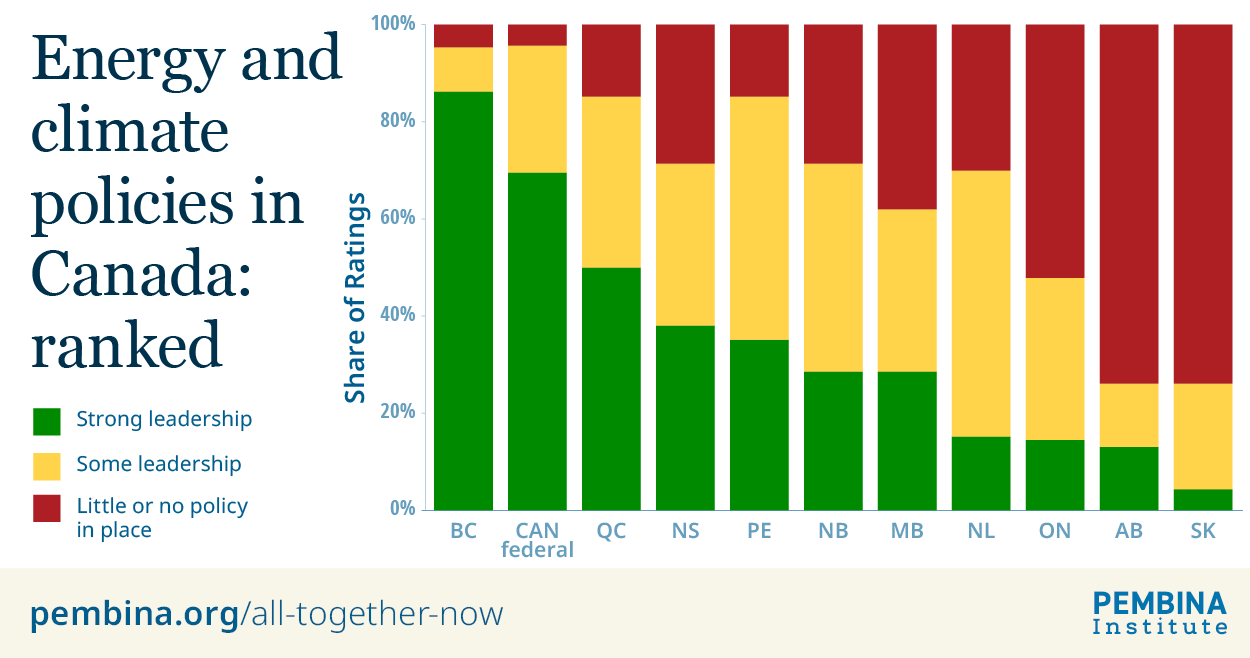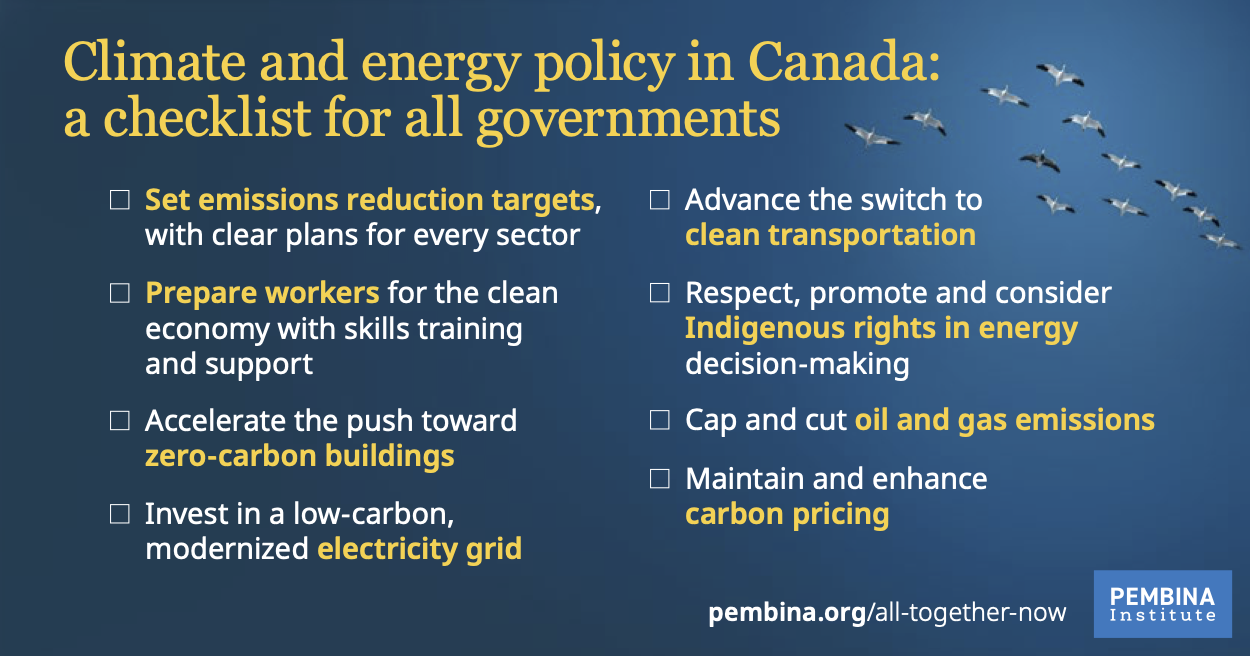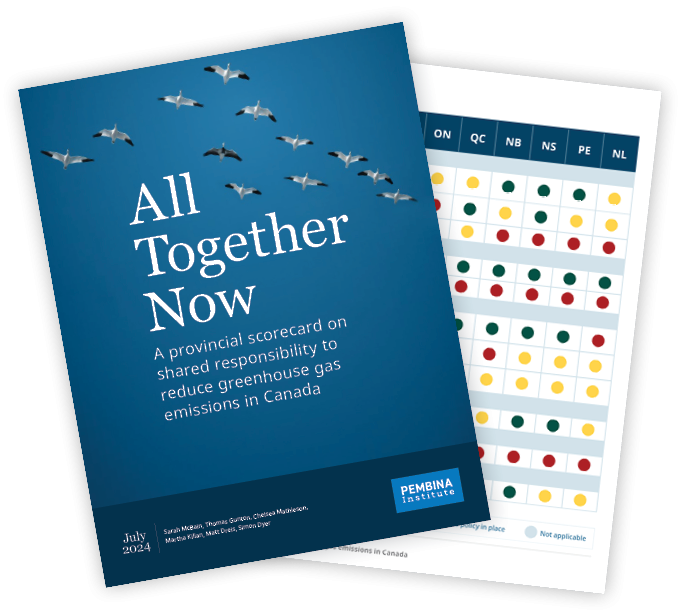CALGARY, AB — Canada is on track to significantly reduce its emissions this decade, thanks to governments that are implementing policies to reduce emissions and shifting towards low-carbon energy generation and use, a new report by the Pembina Institute and Simon Fraser University has found.
All Together Now: A provincial scorecard on shared responsibility to reduce greenhouse gas emissions in Canada assesses the performance of Canada’s federal and provincial governments against a set of 23 energy and climate policy indicators, including:
- The existence of comprehensive climate and energy transition plans, bolstered by credible emissions reduction targets.
- Targeted measures for high-emitting sectors, such as:
- Zero-emission vehicle sales regulations and purchase incentives.
- Reforms to building codes to create industry standards around zero-carbon homes and buildings.
- Policies to decarbonize electricity grids, such as those that encourage renewables development.
- Oil and gas emissions reduction policies, especially methane regulations, where applicable.
- Other initiatives aimed at ensuring the economic benefits of the clean energy transition are fairly and equitably shared across communities, such as measures to support and reskill workers.
- Evidence of reconciliation imperatives being built into the climate planning process, such as by governments adopting the United Nations Declaration on the Rights of Indigenous Peoples (UNDRIP).
- Adaptation planning to mitigate the impacts of climate change on vulnerable demographics and economic sectors.
- Mechanisms to hold governments accountable to these climate plans and policies (such as independent monitoring and reporting processes).
Overall, the report finds a wide variation of performance across Canada’s governments. There is evidence of strong leadership from the governments of British Columbia and Quebec, as well as the federal government. Several other provinces have climate plans and policies that are working in some areas, but need to be updated to match the pace and scale of the energy transition now underway globally.
Conversely, there was very little evidence of adequate work by the governments of Alberta and Saskatchewan to plan to reduce emissions and participate in the emerging clean economy, with these governments also actively opposing some federal climate measures.


Pembina Institute experts are available to discuss the findings of the report, including implications for Canada’s federal and provincial governments, and the links between good climate policy and planning and the continued economic security of Canadians in the decades ahead.
Quotes
“Governments must plan for the future health and prosperity of their citizens. In 2024, this means plans and policies to reduce emissions and capitalize on clean growth industries – like zero-emissions vehicles and low-carbon buildings, powered by clean electricity grids. Our assessment is a reminder that Canada’s federal government and ten provincial governments must be held equally accountable to this task, so that all Canadians can experience the social, health, environmental and economic benefits of the new energy economy.
“We are seeing some bright spots of leadership. But too many governments in Canada have climate plans that are out of sync with the scale and pace of the energy transition that is already underway globally – and some are still actively opposing climate measures. All Canadians deserve to have a future that is climate-safe and economically secure; our report is a reminder to all governments of their shared responsibilities in this.”
— Sarah McBain, Senior Analyst, Pembina Institute
[30]
Contact
Alex Burton
Communications Manager, Pembina Institute
825-994-2558



